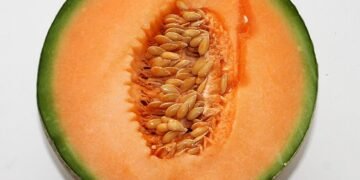Unlocking the Power of Plant Medicine: A Guide to Thriving with Cannabis for Optimal Health
Plant medicine has been used for centuries to promote health and well-being. One plant in particular, cannabis, has gained popularity in recent years for its therapeutic properties. From pain relief to anxiety management, cannabis offers a wide range of benefits for those looking to improve their overall health. In this guide, we will explore the power of plant medicine and how you can use cannabis to thrive and achieve optimal health.
The Benefits of Cannabis
Cannabis contains over 100 different cannabinoids, each with its own unique properties and effects on the body. The two most well-known cannabinoids are THC and CBD. THC is the psychoactive component of cannabis that produces the « high » sensation, while CBD is non-psychoactive and offers a variety of therapeutic benefits without the intoxicating effects.
Some of the potential benefits of cannabis include:
- Pain relief
- Reduced inflammation
- Improved sleep
- Decreased anxiety and depression
- Enhanced mood and relaxation
Choosing the Right Strain
When using cannabis for health purposes, it’s important to choose the right strain for your specific needs. There are two main types of cannabis strains: indica and sativa. Indica strains are known for their relaxing and sedating effects, making them ideal for nighttime use or for those looking to unwind after a long day. Sativa strains, on the other hand, are more energizing and uplifting, making them a great option for daytime use or for boosting creativity and focus.
In addition to indica and sativa strains, there are also hybrid strains that combine the effects of both types. When selecting a strain, consider your desired outcomes and choose a strain that aligns with your goals for using cannabis.
Methods of Consumption
There are several ways to consume cannabis, each with its own unique benefits and effects. Some of the most common methods of consumption include:
- Smoking: Smoking cannabis is one of the most traditional methods of consumption. It offers quick onset of effects and allows for easy dose control.
- Vaping: Vaping cannabis involves heating the flower or oil to create a vapor that can be inhaled. This method is considered safer than smoking and offers a more discreet option for consumption.
- Edibles: Edibles are food products infused with cannabis extract. They offer a longer-lasting and more potent effect compared to smoking or vaping.
- Tinctures: Tinctures are liquid extracts of cannabis that can be taken sublingually or added to food or beverages. They offer precise dosing and fast onset of effects.
Dosage and Titration
When using cannabis for health purposes, it’s important to start with a low dose and gradually increase until you achieve the desired effects. This process, known as titration, allows you to find the optimal dose for your individual needs while minimizing the risk of adverse effects.
Keep in mind that the effects of cannabis can vary depending on factors such as your tolerance, metabolism, and the method of consumption. Start with a low dose, wait for at least 30 minutes to assess the effects, and adjust as needed until you find the right dose for you.
Legal Considerations
Before using cannabis for health purposes, it’s important to be aware of the legal considerations in your area. While cannabis is legal for medical and/or recreational use in many states and countries, there are still restrictions and regulations that vary by location.
Be sure to research the laws and regulations in your area before using cannabis to ensure that you are in compliance with local regulations. If you are unsure about the legal status of cannabis in your area, consult with a healthcare professional or legal expert for guidance.
Common Questions About Cannabis
As cannabis becomes more mainstream, there are still many questions and misconceptions surrounding its use. Here are some common questions about cannabis and their answers:
Is cannabis addictive?
Cannabis can be habit-forming for some individuals, but it is not physically addictive in the same way that substances like alcohol or opioids are. However, some people may develop a psychological dependence on cannabis, especially if they use it regularly or in high doses.
Can I overdose on cannabis?
While it is possible to consume too much cannabis and experience uncomfortable side effects such as anxiety, paranoia, or dizziness, it is virtually impossible to overdose on cannabis in the same way that you can overdose on alcohol or opioids. However, it’s important to use cannabis responsibly and in moderation to avoid adverse effects.
Is cannabis safe for pregnant or breastfeeding women?
There is limited research on the effects of cannabis use during pregnancy and breastfeeding, so it is generally recommended to avoid cannabis during these periods to minimize potential risks to the developing fetus or newborn. If you have questions about using cannabis while pregnant or breastfeeding, consult with a healthcare provider for guidance.
Conclusion
Cannabis is a powerful plant medicine that offers a wide range of benefits for those looking to improve their health and well-being. By choosing the right strain, method of consumption, and dosage, you can unlock the full potential of cannabis and thrive with optimal health.
Remember to research the legal considerations in your area and consult with a healthcare professional before using cannabis for health purposes. With proper education and guidance, you can harness the power of plant medicine and experience the many benefits that cannabis has to offer.
Whether you’re looking for pain relief, stress management, or improved sleep, cannabis can be a valuable tool in your wellness toolkit. Embrace the power of plant medicine and unlock a world of possibilities for optimal health and vitality.




















![The Mind-Blowing Effects of [Cannabis Strain]](https://cannabisdailyguide.com/wp-content/uploads/2025/10/tree-4138799_960_720-360x180.jpg)

















































